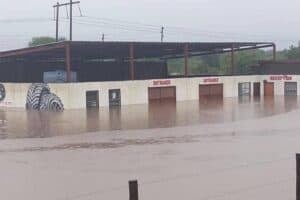To help countries with high water security risks, groundwater should be at the heart of sustainable development policymaking.

Groundwater has always been critically important to human society and ecosystems, but this hasn’t been fully recognised.
To help countries with high water security risks, groundwater should be at the heart of sustainable development policymaking.
This is one of the key messages from UN Water as it and many other organisations globally will be marking on World Water Day on 22 March, and a message which the South African National Bottled Water Association (SANBWA) strongly endorses.
While not one of the 30 driest countries in the world, South Africa does have significant challenges when it comes to water.
Rankings aside, the country does have significant regions of high water stress and is very vulnerable to water risks. In the driest parts of the country, groundwater may be the only water people have access to.” Despite being invisible, groundwater’s impact is visible everywhere,” she said.
“Our drinking water and sanitation, our food supply and natural environment – all these rely on groundwater. It is also critically important to the healthy functioning of ecosystems, such as wetlands. In deltas and coastal areas, groundwater ensures the stability of the ground and prevents seawater intrusion under the land.
“Unfortunately, human activities over-use and pollute groundwater in many places. In others, we don’t know how much water is down there. Groundwater is out of sight, but it mustn’t be out of mind. What we do on the surface matters underground.
“We must actively avoid using products that can poison or degrade the quality of the soil and the water beneath it and use groundwater as efficiently as possible. The other important consideration is that groundwater crosses borders. We, therefore, need to work together with our neighbours to improve the way we share transboundary groundwater resources, balancing the needs in a changing world,” said Metcalf.
ALSO READ: The reality of water politics
Much of the water bottled by South Africa’s bottled water industry comes from underground water sources.
In fact, bottled water – or, more correctly, packaged water – is categorised in South Africa as follows:
- Natural water: This is water of a certain composition, obtained directly from a natural or drilled underground source and bottled near the source under hygienic conditions. Approximately 70% of all bottled water in South Africa is natural water.
- Water defined by origin: This is water from a specific environmental source such as a spring without passing a community water system. Approximately 20%of all bottled water in South Africa is water defined by origin.
- Mineral water: Bottled water obtained direct from subterranean water-bearing strata, which contains mineral salts in various proportions, characterised by its mineral content of constant composition and temperature, taking into account natural cycles and fluctuations. It may be classified as a “natural water” or as “water defined by origin”.
- Spring water: Bottled water sourced from an underground formation from which water flows naturally to the surface of the earth and which is collected from the spring or from a borehole tapping the underground formation.
- Prepared water: This is water that has undergone antimicrobial treatment as well as treatment that alters the original physical or chemical properties of the water. It could come from a municipal source. Approximately 10% of all bottled water in South Africa is prepared water. SANBWA’s bottled water standard covers legal, hygiene, food safety and quality.
– Metcalfe is the CEO of the South African National Bottled Water Association






